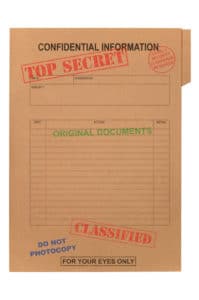These files can now be turned over to defendants in criminal cases
In 2017, a California appellate court held that the Los Angeles County Sheriff’s Department could not turn over the names of 300 police officers — all of whom had a history of misconduct — to prosecutors. These officers were potential witnesses in criminal cases. In late August, the California Supreme Court overruled that decision, holding that police departments can tell prosecutors about a law enforcement officer’s history of misconduct when the officer is scheduled to testify in a criminal case.
As an experienced criminal defense lawyer Orange County, CA can explain, this ruling is particularly significant because of the law that requires prosecutors to turn over certain materials in its possession. Under the 1963 United States Supreme Court decision in Brady v. Maryland, a prosecutor must disclose to the defense any evidence that is favorable to the defendant, or that would change the outcome of the case. If a police officer involved in the case had a history of misconduct — such as lying on the stand or planting evidence — that is the type of evidence that would have to be turned over under Brady.
The California Supreme Court found that Assembly Bill 1421 — a new law that requires public access to police misconduct records — means that these type of records are no longer confidential. The Association of Los Angeles Deputy Sheriffs had opposed disclosure of police misconduct records, arguing that doing so would violate officers’ privacy rights. The Supreme Court disagreed with that argument, finding that a defendant’s right to a fair trial outweighed any concerns about an officer’s privacy rights.
What does this mean for people who have been charged with a crime in California? According to a seasoned criminal defense lawyer Orange County, CA, it could be significant if an officer involved in your case has a history of misconduct. For example, if you are arrested by a police officer who has a history of excessive force, that information can be turned over to prosecutors when the officer is set to testify in your criminal case. The prosecutor will then be required to provide that information to your attorney. From there, your lawyer can use this evidence in a number of ways. It may be the basis for a motion to dismiss, if excessive force was also used in your case. It may also be used as a negotiation tool to have your charges reduced.
This decision is important, as it lifts the veil of secrecy surrounding police misconduct in the state of California. While it will not impact every criminal case, if a law enforcement officer involved in your case does have a history of misconduct, your criminal defense lawyer Orange County, CA may be able to use that information strategically.
If you have been charged with a crime, you will need a highly skilled attorney to represent you. The Chambers Law Firm can help. Contact us today at 714-760-4088 or dchambers@clfca.com to schedule a free initial consultation.





